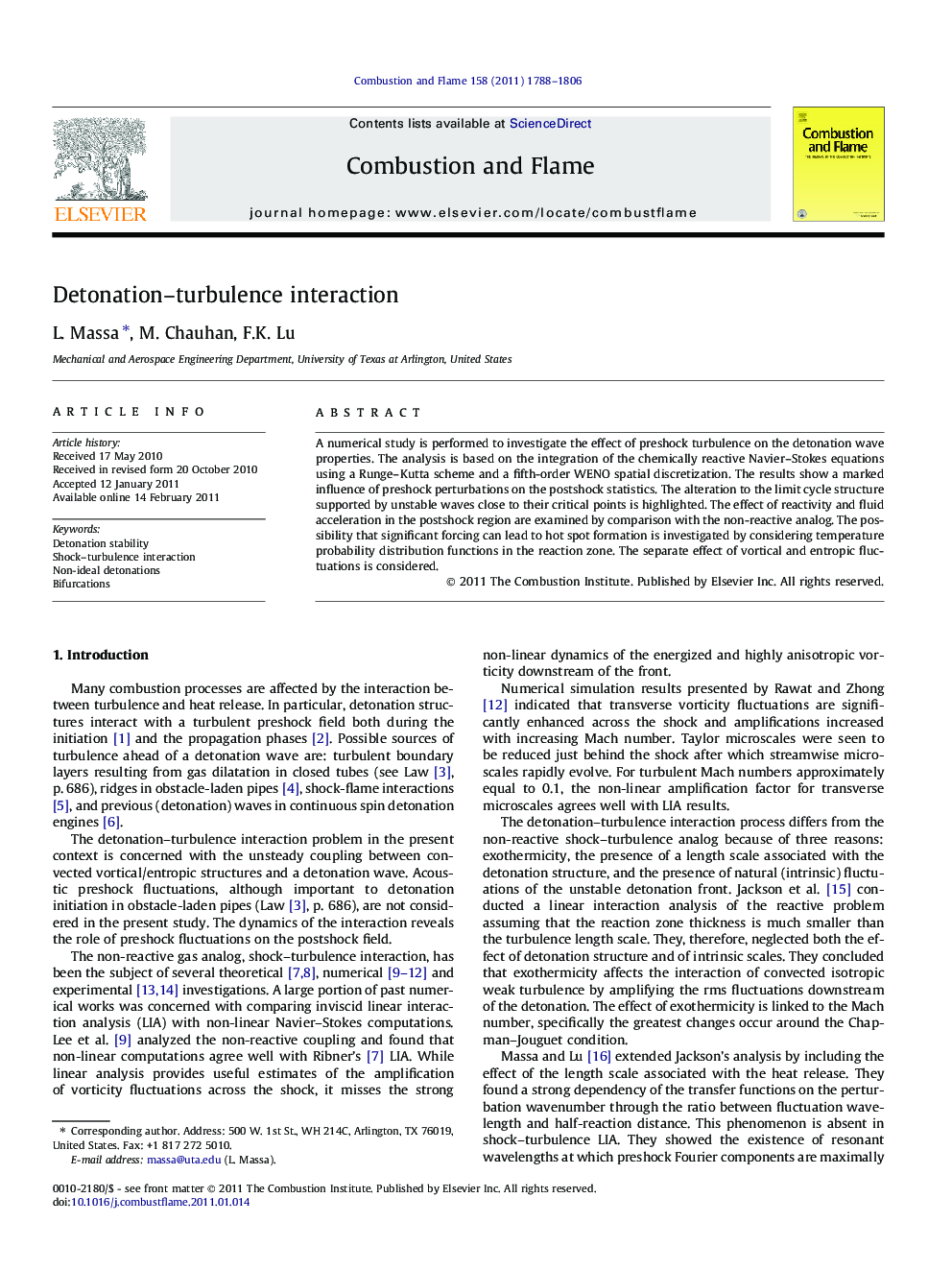| Article ID | Journal | Published Year | Pages | File Type |
|---|---|---|---|---|
| 169465 | Combustion and Flame | 2011 | 19 Pages |
A numerical study is performed to investigate the effect of preshock turbulence on the detonation wave properties. The analysis is based on the integration of the chemically reactive Navier–Stokes equations using a Runge–Kutta scheme and a fifth-order WENO spatial discretization. The results show a marked influence of preshock perturbations on the postshock statistics. The alteration to the limit cycle structure supported by unstable waves close to their critical points is highlighted. The effect of reactivity and fluid acceleration in the postshock region are examined by comparison with the non-reactive analog. The possibility that significant forcing can lead to hot spot formation is investigated by considering temperature probability distribution functions in the reaction zone. The separate effect of vortical and entropic fluctuations is considered.
